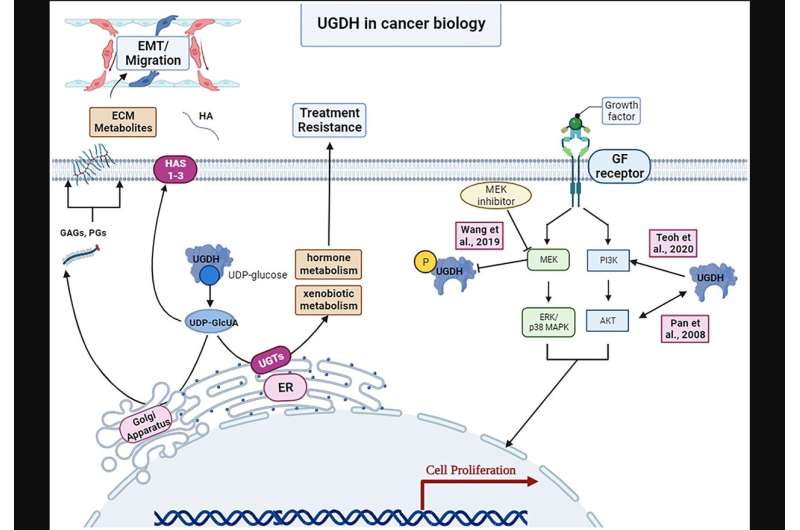
A new review paper titled “UDP-glucose dehydrogenase (UGDH) in clinical oncology and cancer biology” has been published in Oncotarget.
UDP-glucose-6-dehydrogenase (UGDH) is a cytosolic, hexameric enzyme that converts UDP-glucose to UDP-glucuronic acid (UDP-GlcUA), a key reaction in hormone and xenobiotic metabolism and in the production of extracellular matrix precursors.
In this review, researchers from Johns Hopkins Hospital, Duke University, Stanford University, Duke Center for Brain and Spine Metastasis, and Duke Cancer Institute classify UGDH as a molecular indicator of tumor progression in multiple cancer types, describe its involvement in key canonical cancer signaling pathways, and identify methods to inhibit UGDH, its substrates, and its downstream products.
“As such, we position UGDH as an enzyme to be exploited as a potential prognostication marker in oncology and a therapeutic target in cancer biology,” the researchers summarize.
More information:
Meghan J. Price et al, UDP-glucose dehydrogenase (UGDH) in clinical oncology and cancer biology, Oncotarget (2023). DOI: 10.18632/oncotarget.28514
Journal information:
Oncotarget
Source: Read Full Article





